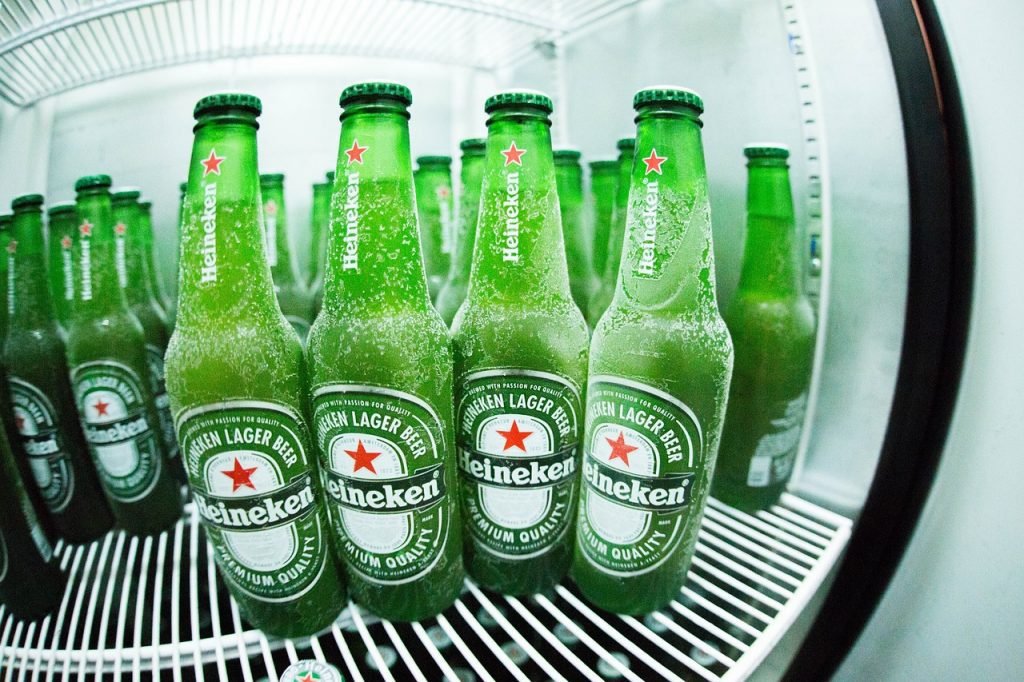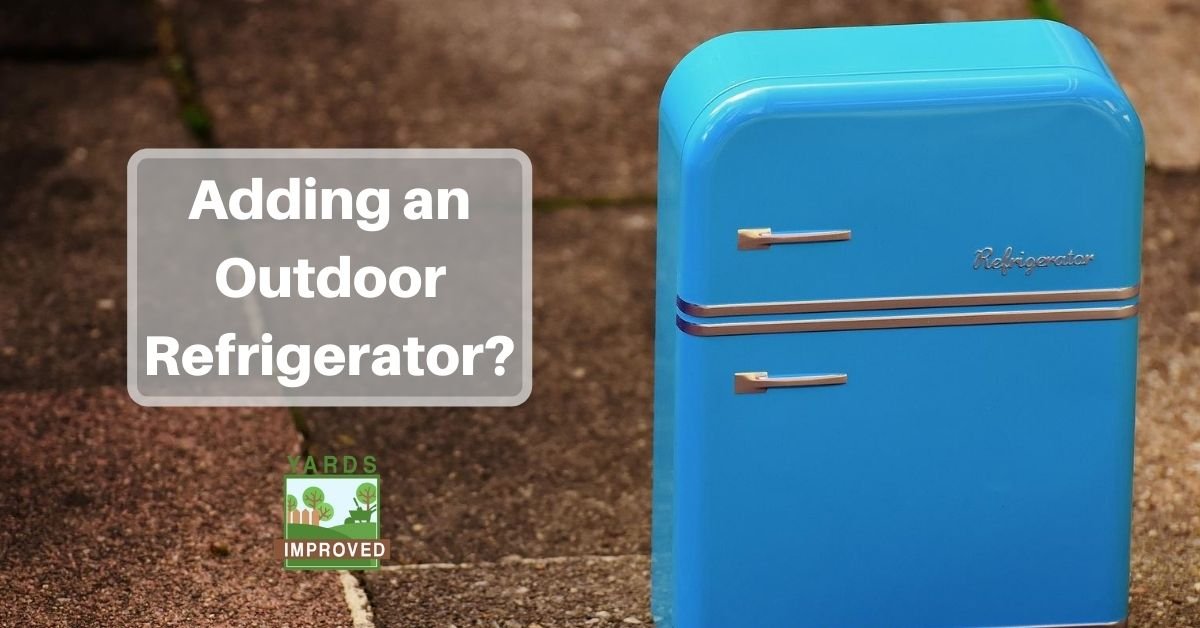A refrigerator in your yard? That can be a great idea! Of course, we don’t mean a broken down, ugly piece of junk that barely works. No, you want a stylish piece that looks great. Think about the cold drinks you can enjoy poolside. Or the steps you’ll save by keeping raw meat on hand and ready to toss on the grill.
Yes, a fridge in your outdoor kitchen or bar or elsewhere around your patio is a great convenience. However, there are some special concerns to keep in mind.
Can’t Any Fridge Work Outdoors?
You could, if you want, drag any refrigerator out to the yard, plug it in, and let it run. Odds are, though, that it’s not going to last long. It’s also going to drive up your electric bill.
Your average kitchen refrigerator is designed for specific conditions. Those are the conditions found inside your house. You get the most out of them when they run at room temperature. Outdoor temperatures in most places vary far more than indoors. And that means your refrigerator will struggle to keep up with the changes.
The outer case of your fridge is probably not designed to stand up to the elements, either. Even if you live in a mild climate, the sun’s rays will do a job on the finish. Rain, wind, cold, and other weather conditions also cause damage.
You have to be concerned about the electrical connection, too. First, you need a working outlet near where you want to place the fridge. The plug and cord are also affected by weather – and may be attractive for animals to chew on.
If you’re having a party and need a refrigerator in the yard for a day, you can get by fine with anything. It might struggle on a warm day, but it will be usable. However, if you want something more permanent, you should look at a unit designed for outdoor use.
What Makes Outdoor Refrigerators Special
A refrigerator designed to be used outdoors takes the issues above into consideration. It’s designed to stand up better to the special challenges of being exposed to the elements.
That’s still going to come with a higher price tag, of course. Most likely, it will come both in upfront and ongoing costs. The case will be more durable. The motor will also be more efficient. Still, it’s not going to match the efficiency of a kitchen model.

After all, it might have to function in 95° heat instead of a comfy 68° inside. It won’t use as much energy as an indoor unit straining on the patio, but it likely will use more than a regular unit used inside.
The best cases for outdoor refrigerators are made of stainless steel. It’s good in the elements. Also, it reflects a lot of heat rather than absorbing it. That helps with the efficiency of cooling, too.
Most refrigerators advertised for outdoor use are smaller units. They typically are in the 3.0 to 5.5 cubic feet range. They’re great for below or even on a counter. There are larger ones available, but they’re less common.
Find out which outdoor refrigerators are best!
Do Your Part, Too
Of course, you still have to plan right for your new outdoor refrigerator.
While it’s designed to do better with changing climate conditions, you should still protect it as much as possible. Keep it in a shaded area but away from trees that will drop sap on it. This will help it run better as well as keep it looking good.
At the same time, remember that an outdoor fridge still isn’t an “all-weather” unit. If you face extreme weather, move the unit to the garage or house. It’s not designed to stand up to freezing temperatures or tropical storms. In the cold, disconnect it and wrap insulate around it if you can’t move it.
Make sure you observe proper electrical safety measures, too. Don’t use extension cords with your outdoor refrigerator. Be sure it’s near the outlet and that the cord isn’t stretched. Periodically inspect the cord to make sure it’s still in good shape. If it’s damaged, consult an electrician.
While checking the cord, be sure to clear out the area underneath and behind the refrigerator. Leaves and dirt can accumulate here. They increase motor strain since the motor can’t cool off properly. They can also become a fire hazard.
Conclusion
If you want to use a refrigerator outdoors regularly, it’s worth the investment of getting one designed for that purpose. It might cost a bit more, but it will hold up longer and run more efficiently than one not designed for this purpose. Of course, proper care is essential, too!









